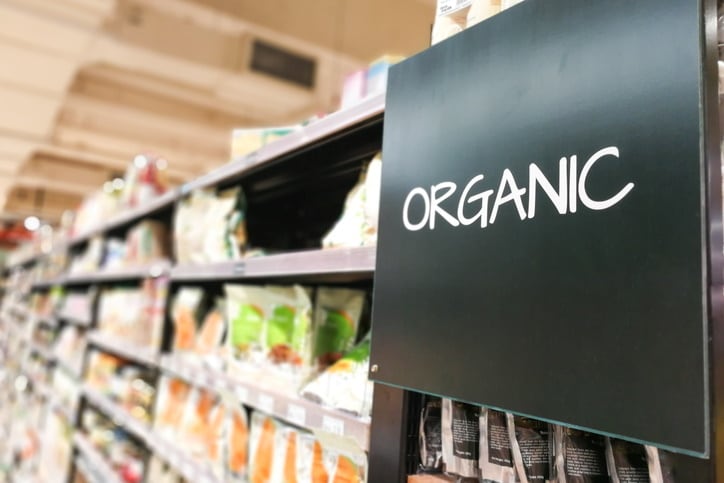Currently, the UK and EU adhere to the same rules on organic food production. But on 31 December, when the transition period for the UK’s departure from European Union ends, so too will this formal arrangement.
If a last-minute Brexit trade deal, including agreement over organic equivalency, isn’t reached, UK organic exports to the EU would cease.
To avoid this scenario, the EC has approved a proposal to recognise UK organic certification standards for at least 12 months after the country leaves the European Union. This will allow UK organic produce to continue to be traded across European markets next year.
The UK organic sector has exhaled a collective sigh of relief.
“Exports to the EU have and always will be an important part of the UK organic supply chain and to be able to continue to export to that key market from January is a huge relief,” NFU organic forum chair Andrew Burgess said. "This decision should offer short-term certainty for those organic businesses who’ve been concerned over losing access to this valuable market."
“It’s with huge relief we can confirm that Soil Association Certification and all other UK organic certification bodies are now listed within the most recent amend to regulation EC1235/2008, until at least the end of 2021,” Lee Holdstock, Senior Business Development Manager of Soil Association Certification, commented.
“The news will be a relief to the organic sector that’s been living with uncertainty for so long,” Organic Farmers & Growers (OF&G) CEO Roger Kerr observed.
But Kerr and others were also at pains to point out that this arrangement is only a ‘short-term gain’.
Uncertainty remains beyond 2021
The EC recognition fails to address the regulatory status beyond the end of 2021 as new EU organic regulation comes into effect on 1 January 2022.
“This is a short-term gain for the industry,” Kerr explained. “It still doesn’t deliver the robust national organic equivalency agreement between the UK and EU we’re calling for.”
Why is equivalency important?
The European Union is a massively significant market for UK organic suppliers. According to Nielsen Scantrack data, the UK organic market is on track to reach £2.6bn by end of 2020, after growth of 9.5%. Exports to the EU are estimated to be worth around £225m a year.
The Soil Association’s Holdstock said that the EC move recognises ‘the value of these exports to the UK’s burgeoning organic market’. He stressed possibility of a trade deal including provision for organic equivalency is ‘not exhausted’.
Likewise, the NFU remains hopeful that agreement on organic standards can still be reached.
Burgess elaborated: “UK organic mutual equivalence with the EU is something the UK government has been seeking to be included as a technical annex within the draft Free Trade Agreement text currently being negotiated. We hope that an agreement is reached which mutually recognises the UK and EU as having equivalent organic standards to provide more long-term certainty for the organics sector.”
Kerr said that if a deal can be done, it is hoped there wouldn’t be a need for changes to labelling or inspection requirements - and all the costs that would be associated.
“We would anticipate that this would avoid the need for label changes and could mean that the requirement for certificates of inspection can be avoided once there’s an agreement. This would be of significant benefit to operators.”
The Soil Association's Holdstock told FoodNavigator that while organic producers are hoping for a deal that includes equivalency provisions it seems likely now that, whatever the outcome, producers will face increased costs.
“Our hopes for Brexit negotiations would be a provision for organic equivalency. This could significantly reduce the accreditation and admin burden placed on certifiers associated with maintaining EC1235 scopes," he explained.
“Whatever happens now Organic Certificates of Inspection and the associated administration are likely to incur significant cost for businesses. However, streamlining of import processes and confirmation from the EU on grace periods for organic labelling and implementation of export procedures, could certainly alleviate some of the challenges facing organic certifiers, businesses and retailers.”




